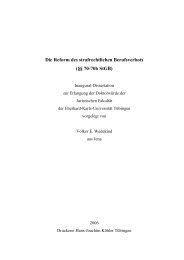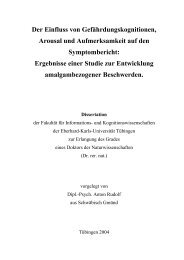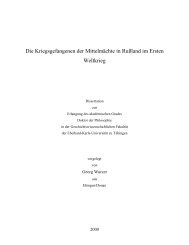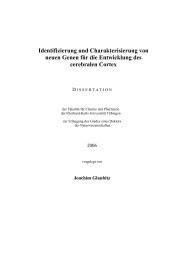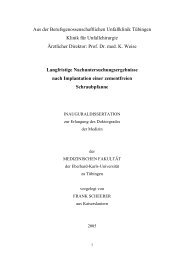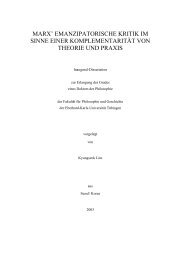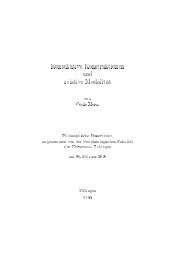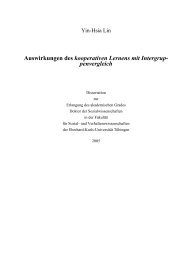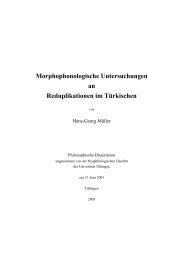Perception verb complements in Akatek, a Mayan language
Perception verb complements in Akatek, a Mayan language
Perception verb complements in Akatek, a Mayan language
Create successful ePaper yourself
Turn your PDF publications into a flip-book with our unique Google optimized e-Paper software.
2. TYPOLOGICAL CHARACTERISTICS 121<br />
14. Negative elements precede the <strong>verb</strong>.<br />
In <strong>Akatek</strong>, the negative morphemes precede the aspect morphemes,<br />
which <strong>in</strong> turn precede the <strong>verb</strong>:<br />
(73) k'am chi-;-y-ab' naj patron<br />
NEG IMPF-B3-A3-hear NCL Sp:boss<br />
`The boss didn't hear him.' Penalosa & Say (1992)<br />
15. Acausative element precedes the root of the causativized <strong>verb</strong> <strong>in</strong><br />
VOS <strong>language</strong>s.<br />
This is the only problematic criterion. Morphological causatives<br />
like -tse are su xed and not pre xed to the <strong>verb</strong> root<br />
as seen <strong>in</strong> (74). However, similar to what Keenan notices for<br />
Tzeltal, there is an alternative construction, <strong>in</strong> which a causative<br />
<strong>verb</strong>, <strong>in</strong> <strong>Akatek</strong> a' `put' precedes an <strong>in</strong> nitive as <strong>in</strong> (75):<br />
(74) x-;-<strong>in</strong>-wey-tse-a(a)-oj<br />
naj an<br />
PERF-B3-A1-sleep-CAUS-DIR-DIR he<br />
`I made him sleep.' Zavala (1992b), 89<br />
CL1s<br />
(75) x-ach-w-a' xew an<br />
PERF-B2-A1-put rest CL1s<br />
`I made you rest.' Zavala (1992b), 320<br />
16. All VOS <strong>language</strong>s have passive forms of <strong>verb</strong>s.<br />
<strong>Akatek</strong> has three passives, an impersonal, an adversative, and<br />
a perfective one, all of which are marked by passive morphology<br />
on the <strong>verb</strong> <strong>in</strong> the form of di erent su xes. The impersonal passive<br />
is marked by -le as shown <strong>in</strong> example (76), the adversative<br />
by -cha which can be seen <strong>in</strong> example (77) and the perfective by<br />
-b'il as <strong>in</strong> example (78).<br />
(76) max ;-tx'otx'-le s-mulna-il naj un<strong>in</strong><br />
PERF B3-show-PASS A3-work-NMZR NCL boy<br />
`The job was shown to the boy.' (lit. The boy's job was<br />
shown.)<br />
(77) ach-ij-cha<br />
w-uu an<br />
B2-back.carry-PASS A1-by CL1s<br />
`I was able to carry you (to your detriment).'<br />
Zavala (1997), 453





